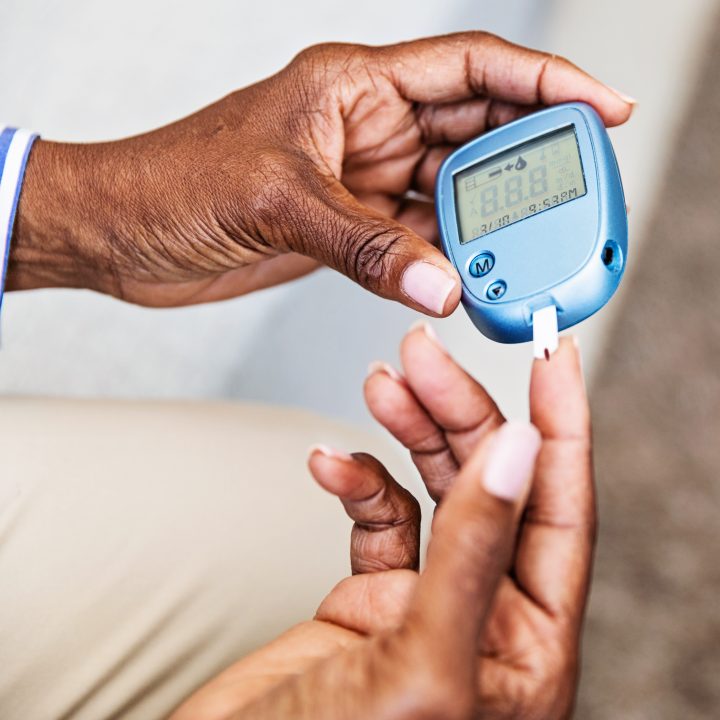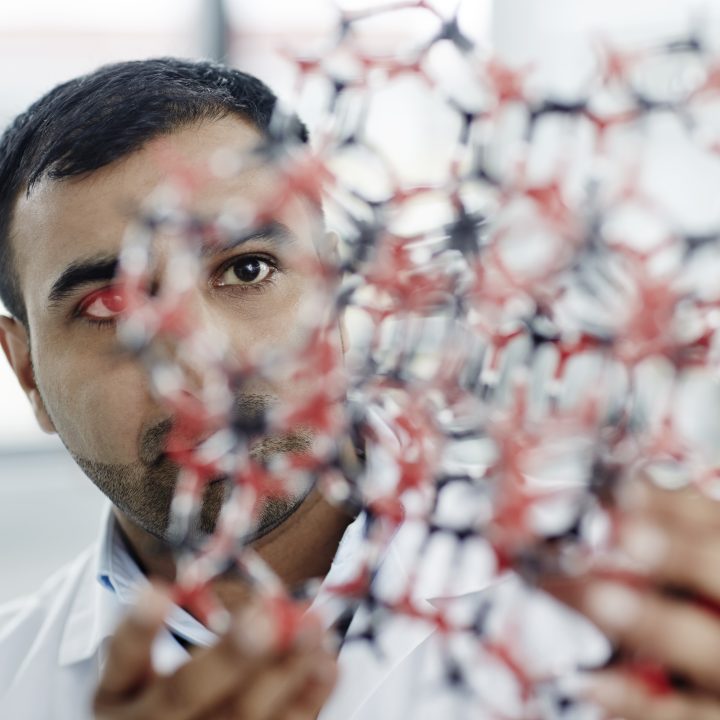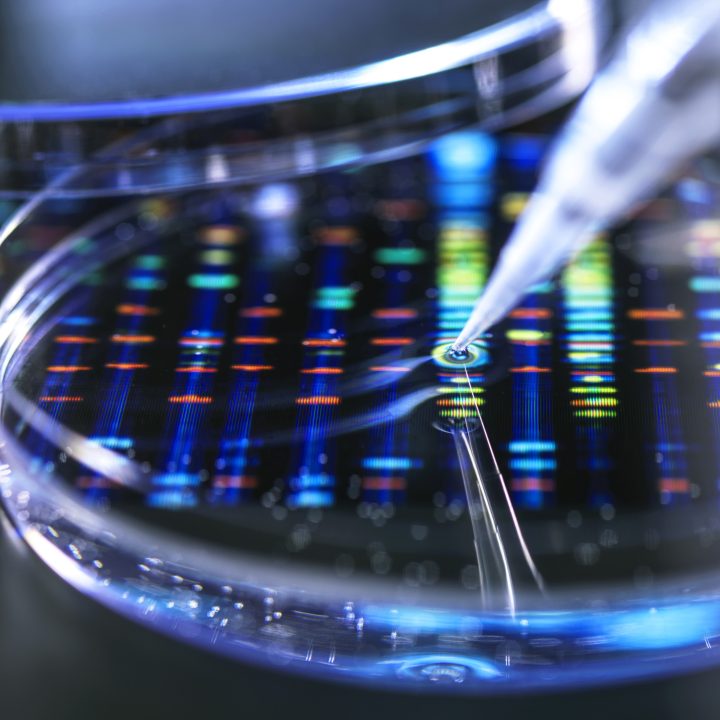
About the Challenge Programme
The Challenge Programme targets ambitious research projects within annually selected themes that address some of the major societal and planetary challenges. Every year, we define new themes that comprise the framework for calls for applications in open competition within that one year.
The Challenge Programme gives leading researchers the opportunity to assemble a strong team that can collaborate to develop solutions to the challenges. The Programme provides substantial, long-term funding to enable scientific depth and focus and facilitate synergy between the research partners.

Challenge Programme 2025
In 2025, the Foundation’s Challenge Programme will award up to DKK 480 million for researchers who want to engage in the following four themes:
- Theme 1: Heterogeneity in biomanufacturing
- Theme 2: Ectopic fat and cardiometabolic disease
- Theme 3: Interactions of infectious disease & CMD
- Theme 4: The NNF Grand AI Challenge
Each project can receive DKK 30-60 million for a period of up to 6 years.

Challenge Programme 2024
In 2024, the Foundation’s Challenge Programme will award up to DKK 360 million for researchers who want to engage in the following three themes:
- Theme 1: Integrating safety and environmental sustainability impacts of bio-based solutions
- Theme 2: Disentangling insulin resistance
- Theme 3: Novel or emerging technologies for sustainable and continuous energy supply
Each project can receive DKK 30-60 million for a period of up to 6 years.

Challenge Programme 2023
In 2023, the Foundation’s Challenge Programme awarded up to DKK 360 million for researchers wanting to engage in the following three themes:
- Theme 1: RNA- and Oligonucleotide-based Therapeutics
- Theme 2: Prediction of Climate Change and Effect of Mitigating Solutions
- Theme 3: Future Agri-Food Systems
Each project received DKK 30-60 million for a period of up to 6 years.

Challenge Programme 2022
In 2022, the Foundation’s Challenge Programme awarded up to DKK 360 million for researchers wanting to engage in the following three themes:
- Theme 1: Recycling for a Sustainable Society
- Theme 2: Energy Materials with Biological Applications
- Theme 3: Immunity at Mucosal Surfaces
Each project received up to DKK 60 million for a period of up to 6 years.

Challenge Programme 2021
In 2021, the Foundation’s Challenge Programme awarded up to DKK 360 million for researchers wanting to engage in the following three themes:
- Theme 1: Smart Nanomaterials for Applications in Life Science
- Theme 2: Proteins for Tomorrow’s Food
- Theme 3: Mathematical Modelling of Health and Disease
Each project received up to DKK 60 million for a period of up to 6 years.

Challenge Programme 2020
In 2020, the Foundation’s Challenge Programme awarded up to DKK 480 million for researchers wanting to engage in the following four themes:
- Theme 1: Neurodegenerative diseases in an aging population
- Theme 2: Quantum simulators for unravelling complex processes in nature
- Theme 3: Biodiversity & productivity of managed ecosystems
- Theme 4: The microbial secretome and the plant cell wall
Each project received up to DKK 60 million for a period of up to 6 years.

Challenge Programme 2019
In 2019, the Foundation’s Challenge Programme awarded up to DKK 360 million for researchers wanting to engage in the following three themes:
- Theme 1: How Dietary Factors Affect the Human Microbiome
- Theme 2: Modern Plant Science – Towards a Sustainable World
- Theme 3: Emerging Infectious Diseases
Each project received up to DKK 60 million for a period of up to 6 years.

Challenge Programme 2018
In 2018, the Foundation’s Challenge Programme awarded up to DKK 360 million for researchers wanting to engage in the following three themes:
- Theme 1: Protein Chemistry – Structure, Function and Application
- Theme 2: Pathophysiology, Diagnosis and Treatment of Nonalcoholic Steatohepatitis
- Theme 3: Understanding Obesity at the Cellular Level
Each project received up to DKK 60 million for a period of up to 6 years.

Challenge Programme 2017
In 2017, the Foundation’s Challenge Programme awarded up to DKK 360 million for researchers wanting to engage in the following two themes:
- Theme 1: Big Data in Biomedicine
- Theme 2: Design and engineering of biological molecules and systems
Each project received up to DKK 60 million for a period of up to 6 years.

Challenge Programme 2016
In 2016, the Foundation’s Challenge Programme awarded up to DKK 360 million for researchers wanting to engage in the following two themes:
- Theme 1: Antibiotic resistance and/or alternative antibiotics
- Theme 2: Oral drug-delivery of biopharmaceuticals
Each project received up to DKK 60 million for a period of up to 6 years.

Challenge Programme 2015
In 2015, the Foundation’s Challenge Programme awarded up to DKK 120 million for researchers wanting to engage in the following two themes:
- Theme 1: The human microbiome
- Theme 2: The plant microbiome
Each project received up to DKK 60 million for a period of up to 6 years.
Read about the grant recipients and the awarded projects in our overview of grant recipients.

Challenge Programme 2014
In 2014, the Foundation’s Challenge Programme awarded up to DKK 240 million for researchers wanting to engage in the following two themes:
- Theme 1: Prevention of diabetes and obesity
- Theme 2: Acute and late-stage diabetes complications
Each project received up to DKK 60 million for a period of up to 6 years.







